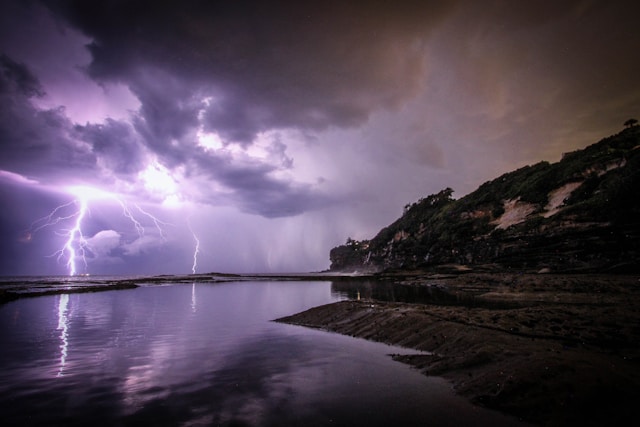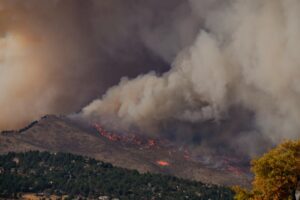Introduction
Tropical storm season can be unpredictable, and every new system serves as another reminder of the potential dangers lurking in the Atlantic. In August 2025, Tropical Storm Dexter has joined the roster of named storms, catching the attention of meteorologists and coastal communities alike. While Dexter may not make landfall or cause devastating damage, it underscores the ever-present risks of hurricane season and why staying alert is critical for everyone along the coast.
Dexter’s Formation: A Typical Atlantic Pattern
Dexter originated from a disturbance east of the United States, dubbed Invest 95L by the National Hurricane Center. Over warm Atlantic waters and under conducive atmospheric conditions, it intensified, was named Tropical Storm Dexter, and began tracking toward Bermuda, well away from the U.S. mainland 5123.
Forecasters have used sophisticated weather models to monitor Dexter’s progress. These spaghetti models consistently showed the storm staying offshore, but their consensus also highlights how quickly tropical weather can change—sometimes with little warning.
Minimal U.S. Impact, but Lesson in Readiness
Although Dexter’s immediate impacts on the U.S. East Coast are minor, with no direct landfall or widespread storm surge expected, the storm does have real-world effects:
- Rough surf and rip currents: Even storms hundreds of miles offshore can stir up Atlantic beaches and pose dangers for swimmers and boaters.
- Flooding from unrelated storms: While Dexter passes, the Southeast has faced multiple days of heavy rain due to a stuck frontal boundary, illustrating how multiple weather systems can interact, possibly amplifying threats or confusing disaster response 12.
- A busy outlook: Dexter is a reminder that prime hurricane season is just beginning. Another tropical wave is being watched in the central Atlantic, keeping the risk level high for coming weeks.
Why Dexter Is a Teachable Moment
Tropical Storm Dexter offers several key reminders for how coastal communities and individuals should approach hurricane season:
- Storms Don’t Need Landfall to Cause Harm
- Dangerous surf, rip currents, and minor coastal flooding can accompany offshore storms.
- Maritime activities face elevated risks even if storms never cross the coastline.
- Preparedness Is a Season-Long Process
- Waiting until a storm is imminent is too late. The time to gather supplies, review evacuation plans, and secure property is well before a threat materializes.
- Confidence in Forecasts Has Limits
- Tropical cyclones can shift paths unexpectedly. A slight change can make a huge difference in whether a region faces clear skies or hazardous weather.
- Secondary Hazards Can Be Deadly
- Dexter’s rain is not the major U.S. concern; instead, it’s the heavy rainfall and flooding caused by a separate stalled front that reinforces the need to pay attention to all weather alerts, not just those for hurricanes.
How to Stay Prepared Throughout the Season
- Stay Informed: Sign up for weather alerts, follow the National Hurricane Center, and pay attention to local forecasts.
- Have a Plan: Know how to evacuate, where local shelters are, and how you’ll communicate with loved ones in an emergency.
- Protect Your Home: Make simple upgrades like storm shutters, and bring items inside that could blow away in high winds.
- Update Your Supplies: Keep essentials on hand—water, food, medication, and emergency electronics.
- Check Insurance: Verify that your flood and homeowners’ policies are up-to-date and sufficient for hurricane-related damages.
Conclusion
Tropical Storm Dexter’s path may keep it away from U.S. shores, but the broader lesson it offers is urgent: hurricane risks are real and ongoing throughout the summer and fall. Regardless of any single storm’s trajectory, proactive preparedness, clear communication, and trust in professional forecasts are the best ways to protect yourself and your community. Stay alert—because when the Atlantic stirs, it’s always better to be ready than to be surprised 1234.







